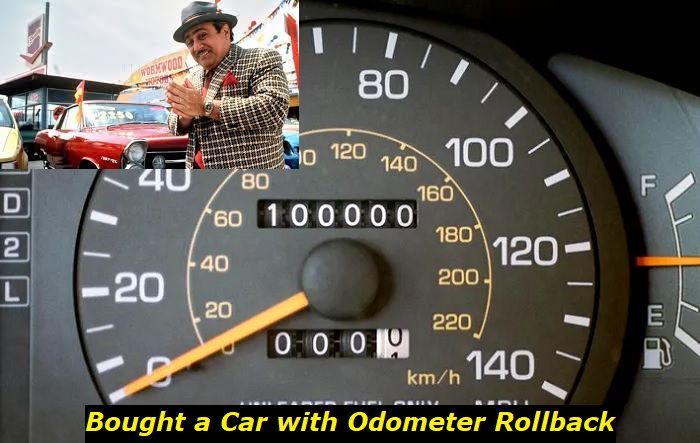Can additives help you deal with the problem of stuck lifters? I don't think so. To repair the engine, you will need to replace the faulty lifters. Even if some great additives can do the job more or less well, they will fail to provide you with long-standing results. Unfortunately, faulty lifters are hard or even impossible to repair.
Lifter additives highlights
- Efficiency:close to zero
- Availability:limited number of products
- Average price: $65
- Way to use:add to engine oil
- DIY use:yes
- Experts' advice:no positive advice
- Independent testing:negative testing results
- Consequences:spoiling of oil properties, engine damage in the long run, no effect on lifters
.jpg)
Why do lifters fail? And what are the symptoms?
Hydraulic lifters are small parts in your engine that control the lift of the valve. The position of the valve in the engine head has to be completely precise for the engine to work efficiently. In engines without hydraulic lifters, the valves have to be adjusted at least once every 30-40 thousand miles. The lifters do this job for you and don't require any adjustment.
Also, the lifters themselves are pretty simple in terms of engineering. They are made to last long. But they can fail because of several reasons:
- dirty oil;
- old oil that lost its features;
- poor-quality oil;
- old lifters or very high mileage;
- physical damage to the engine;
- overheating of the engine head;
- problems with valves.
Whatever happens, things won't be very bright when lifters can't work well. The valve will take the wrong position in every stage of the engine work. This will lead to air leaks in the engine, bad compression, poor vacuum, etc.
Here are the symptoms of the failing hydraulic lifter:
- you may immediately feel the power loss;
- one cylinder may just stop working properly;
- misfiring is possible with certain codes and the check engine light;
- you may hear some knocking in the engine (clicking, tapping);
- the engine will vibrate and even shake.
The symptoms are quite general. Power loss and fuel economy problems along with clicking noises can occur in hundreds of other situations. Anyway, your engine will keep working if only one or two lifters fail. If the problem is with more lifters, the situation may change and even starting the engine will be quite problematic.
I don't recommend any DIY repairs, in this case. It's much wiser to find a good mechanic who will help you with the lifters. But in this article, I'm going to tell you about the "magical" solution - the additives.
What additives you may decide to try?
Whatever I say, you may still be sure that those repair shops are trying to trick you out of money and that 5-dollar additives may save your engine and prolong its life for another decade. OK, let's see if it's really possible.
There are plenty of additives that promise н use they will take care of the stuck lifters. But will they? Here are some things to consider:
- nearly all of those additives basically make your oil less viscose and by this, they aim to clean the dirty lifter;
- this actually may help in those cases when the lifter is clogged with old oil, but those situations are pretty rare;
- when the lifter is broken, no kind of additive is able to bring it back to life;
- also, the additive will make the oil thinner and it may have effects on the engine;
- even if the improvement is achieved, it won't last long.
Unfortunately, any additive will just thin your oil and it will act as an engine cleaning solution. But such oil will also stop doing the job that engine oil should do - lubricating the engine and creating the protective film on its parts. So, this may even lead to worse events in the life of your vehicle.
Additives can help you unclog the stuck lifter in some situations, but after that, you will need to change the oil immediately. If you don't do that, the faulty hydraulic lifter will soon stop bothering you because much worse problems will show up.
Why will additives fail to help you?
First of all, you need to understand the nature of the stuck lifter. This may happen in two cases: when the lifter is badly contaminated or when it's broken. In most cases, it will be broken and whatever kinds of additives you pour into the engine, this won't help you fix the problem.
If the lifter is clogged, the additive may help by thinning the oil. This will flush the lifter and give it a chance of getting back to work. It won't work in all cases and with all additives though. The more efficient way to do this is to buy a solution for flushing the engine in the process of oil change.
It's important to remember that the majority of additives on the market are made to earn money, not to actually help you solve the problems. You need to be extremely careful with these additives because they may have unpredictable effects on the engine.
What are the repair options?
Your best repair option to start with is to change the oil with engine flushing. Your mechanic will use low-viscosity oil to clean the engine and then pour fresh oil with the required parameters. After that, you may find that all the clogged and stuck lifters are working properly. But the results are not guaranteed.
In the majority of cases, engine cleaning will not help you get rid of the problem. If this happens, the only proper way to solve the problem that is left is to replace the lifters.
Here's what your mechanic will need to do:
- the engine head will have to be taken apart to get to the lifters;
- it's worth spending some time and looking at the overall condition of the head;
- the lifters should be replaced if they are broken or cleaned if they are still OK;
- if the car has over 150K miles on it, the lifters should be replaced;
- it makes sense to replace the valve seals at this point;
- also, the mechanic may inspect the other parts of the engine that are open and available for inspection.
It may not sound awful in terms of the amount of work the mechanic will have to do. But it's anyway quite a labor-intensive job and it's going to cost you some money. The price of parts, in this case, is just a small fraction of what you will pay to the repair shop or dealership.
But anyway, I wouldn't recommend trying and repairing faulty lifters on your own.
Can you drive with faulty lifters?
If only one lifter fails, your car will still start and go. But it will lose its power and the engine will work pretty harshly. It doesn't mean you can't drive, but it means driving long distances may be dangerous for the engine.
When the machine is misfiring or having problems with vacuum and compression, it may fail to burn all the incoming fuel. This means this fuel will be burnt elsewhere in the engine systems and will damage them.
I don't recommend driving with faulty lifters. You may drive several miles to the nearest repair shop and ask for help. Or you may drive home and take your car to the garage till you have some time and money to repair it. But driving it as usual for a week or two may lead to even worse damages and more expensive repairs.
What to do to prevent lifters from failing?
Although sometimes we just can't do anything and have to put up with lifter failure, in some cases, the problem can be prevented.
For this, follow these recommendations:
- change oil at least when the manufacturer tells you to do that or even more often;
- change the oil filter with every oil change;
- don't ignore the problems - once you feel something is wrong with the engine, go to the dealership or a good shop;
- have the engine checked properly at least every 50K miles;
- never run on low oil levels - you will destroy not only lifters but many other things, too.
Final thoughts
It's extremely important to remember that your engine requires proper maintenance. If you don't want your car to get stuck in the dealership for weeks, make sure you change the oil on time and buy proper parts when repairing the engine.
Unfortunately, if the hydraulic lifter has already got stuck, it's close to impossible to bring it back to life. In most cases, the faulty lifter will have to be replaced with a new one. This is not the cheapest repair for your engine, but you have little to no alternatives.
Using additives may only be beneficial in some cases and this will also require oil change immediately after that. Be careful with any additives that you pour into the oil pan - they may make things even much worse than that.
About the authors
The CarAraC research team is composed of seasoned auto mechanics and automotive industry professionals, including individuals with advanced degrees and certifications in their field. Our team members boast prestigious credentials, reflecting their extensive knowledge and skills. These qualifications include: IMI: Institute of the Motor Industry, ASE-Certified Master Automobile Technicians; Coventry University, Graduate of MA in Automotive Journalism; Politecnico di Torino, Italy, MS Automotive Engineering; Ss. Cyril and Methodius University in Skopje, Mechanical University in Skopje; TOC Automotive College; DHA Suffa University, Department of Mechanical Engineering






Add comment